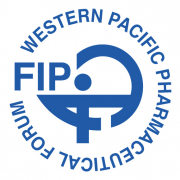World AIDS day 2012: Health Workers are a big part of ‘Getting to Zero’
World AIDS day 2012: Health Workers are a big part of ‘Getting to Zero’
GENEVA | 30 November 2012 – As we mark World AIDS Day “Getting to Zero: Zero new HIV infections, Zero discrimination and Zero AIDS-related deaths”, the Global Health Workforce Alliance (the Alliance) underlines the central role of health workers, including community health workers who dedicate their lives to improving health in their communities and providing care for people living with HIV.
Almost four decades after HIV was first discovered and became part of the public consciousness, large amounts of economic resources have been devoted to prevention, treatment and care. Yet, while some countries have made substantial progress in reducing both prevalence and incidence of the disease alongside responding to the social burden, there is still a long way from “Getting to Zero”. Despite 700,000 fewer new infections compared to ten years ago, worldwide there are still 33 million people living with HIV. Last year, 2.5 million new cases of the infection were diagnosed.
The global shortage of health workers has long been recognized as one of the greatest obstacles to scaling up HIV services for achieving the health-related Millennium Development Goals. A recent study carried out in South Africa 1 (one of the countries with the highest number of HIV cases) concluded that “as the prices of antiretroviral drugs have dropped over the past years, availability of human resources may now be the most important barrier to achieving universal access to HIV treatment in Africa”. A study2 conducted by the Alliance Task force on Universal Access to HIV/AIDS services in 2011, entitled Can MDG 6 Be Achieved With The Health Workforce We Have? found that the global shortage of health workers is a major obstacle to scaling up HIV services for universal access and achieving the health-related Millennium Development Goals.
Health services depend on having the right people, with the right skills, in the right place. Improvements in the numbers and skills of the health workforce could transform the response to HIV and save millions of lives. This can be achieved by preventing HIV among health workers and treating those who are infected; expanding the workforce through training and increasing the skills of the existing health staff; and by retaining skilled staff in the public-health service where they can be most effective in delivering services to the largest numbers of people in need
The importance of health workers was recently acknowledged by Dr Margaret Chan, Director General of the World Health Organization. “Health workers stand on the frontline of the AIDS response” said Dr Chan. “If countries are to achieve universal access to HIV services, one of their first steps must be to ensure that all health workers have access to effective and affordable HIV prevention, treatment, and care” she added.
“Progress for an AIDS-free world is possible, and it is happening. Key elements of an effective HIV control strategy are clearly heath system-related. Every country can make steps in the right direction, accelerate progress and save more lives by adopting health workforce development strategies that are evidence-based and tailored to the local context” said Dr Mubashar Sheikh, Executive Director of the Alliance.
On this day, as we celebrate World Aids Day, the Alliance will continue working through its members and partners in strengthening the health workforce contributing towards a world with Zero new HIV infections, Zero discrimination and Zero AIDS-related deaths. The Alliance urges increased investment in training and recruitment of health workers, at all levels, ensuring a committed and motivated health workforce to better serve our communities.
